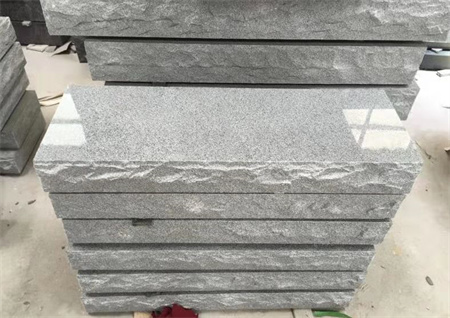The Role of Sustainability in Marketing Granite Memorials

The Role of Sustainability in Marketing Granite Memorials
In recent years, sustainability has become a buzzword in nearly every industry, but when it comes to memorial products, such as granite memorials, the conversation takes on a more profound significance. Memorials are deeply personal symbols of remembrance, and the materials used to create them carry weight not only in terms of physical durability but also ethical considerations. As awareness of environmental issues grows, both consumers and businesses in the memorial industry are increasingly prioritizing sustainable practices in the production and marketing of granite memorials.
Granite has long been a preferred material for creating memorials due to its timeless appeal, resilience, and ability to withstand the elements. However, sourcing granite is not without its environmental impacts. Extracting granite requires substantial amounts of energy and water, and in some cases, quarrying can cause harm to local ecosystems. This raises the question: can granite, a product so deeply embedded in tradition and durability, coexist with sustainable practices?
The answer lies in how the stone is sourced, processed, and marketed. As awareness of sustainability grows, more memorial businesses are adopting eco-conscious practices to address consumer concerns and to ensure the long-term future of both the planet and their industry.

Transparency plays an essential role in this process. Today’s consumers expect more than just promises of quality; they want to know the story behind the product. Businesses that are able to clearly communicate their commitment to sustainability, detailing how their granite is sourced and processed, build trust and credibility with their customers. This openness not only aligns with the growing demand for eco-friendly products but also helps memorial companies stand out in a competitive market.
In addition to sourcing, the production process of granite memorials can also be made more sustainable. By using modern technology, manufacturers are able to reduce waste and energy consumption during cutting, polishing, and engraving. Some companies are even embracing water-based polishing techniques, which eliminate the need for harmful chemicals and reduce water usage. Offering memorials that are crafted with minimal environmental impact helps customers feel that their tribute to a loved one aligns with their values of care for the earth.
Another innovative approach is the promotion of memorials made from reclaimed or recycled granite. This practice not only prevents waste but also offers a unique, often more affordable, alternative to new granite. Reclaimed granite may come from old buildings, monuments, or other structures that have outlived their original purpose. By reusing this stone, memorial companies reduce the demand for newly quarried granite and give the material a second life, making it a truly sustainable choice for those who wish to honor their loved ones.
Sustainability in the marketing of granite memorials also touches on packaging and delivery. The environmental impact of transporting large, heavy stones across long distances can be significant. To reduce the carbon footprint, many companies are opting for local sourcing, ensuring that memorial stones are sourced from quarries closer to the point of sale. This cuts down on transportation emissions and supports local economies. Additionally, businesses are beginning to explore sustainable packaging options, such as biodegradable or recyclable materials, to reduce waste in the delivery process.
As the trend toward sustainability continues to grow, so too does the role of digital platforms in communicating these values. Online marketing offers memorial companies a powerful way to reach a wider audience, allowing them to showcase their commitment to sustainability in ways that are both informative and emotionally resonant. Social media, websites, and email newsletters can all serve as channels for educating consumers about the environmental aspects of their purchasing decisions, helping them make more informed choices.
Ultimately, the role of sustainability in the marketing of granite memorials is not just about responding to a trend—it’s about aligning with the values of a new generation of consumers who care deeply about the legacy they leave behind, both in terms of personal remembrance and environmental stewardship. The funeral and memorial industry, traditionally seen as slow to change, is evolving, and those businesses that can embrace sustainability in both their practices and their marketing will not only contribute to a better future but also strengthen their brand loyalty and customer trust.
As more people begin to prioritize sustainability in every aspect of their lives, it’s clear that this shift will continue to shape the memorial industry in the years to come. Granite, with its long history of symbolizing strength and permanence, can be an ally in this transition, providing an enduring material that can carry with it the values of respect—for both the memory of loved ones and the earth itself.

